David Mann, an executive partner at property consultant TFT, and Saleem Fazal, a partner at law firm Taylor Wessing, met during a work lunch in 2011.
Soon afterwards, they bumped into each other in Clapham, south London, where both men lived. Mann was having a pint with his partner at Kazbar – a gay bar that has since closed – and Fazal walked past hand in hand with his partner.
“I didn’t know whether to duck under the table or embrace him,” says Mann. “It was a bit awkward. At the time, you never expected to see someone from work with a male partner.”
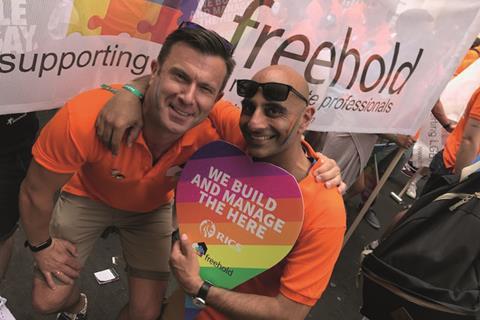
The two men realised it was time for an LGBT property network and founded Freehold. Almost a decade later, the LGBT community in property has benefited a lot from this chance encounter as Freehold now has more than 1,300 members. Similar organisations have sprung up across the country: Openland in Birmingham; LGBT Property Professionals in Manchester; Planning Out for planning professionals; and Off-Site for the construction sector.
Much of the property industry now supports its LGBT members, but when Fazal and Mann first decided to create this network – an unprecedented step – they feared the consequences. As part of LGBT History Month, Property Week looks at how the industry has evolved.
Coming out
Mann hid his identity for much of his career. In the workplace, conversations revolved around football and there was generally a pressure to come across as “a stereotypical surveyor”.
In his early forties, Mann was about to become a partner at TFT and realised if he couldn’t come out at that point in his career, how could young LGBT people entering the industry be expected to? So he did.
“It’s a bit like exhaling for the first time in your life. Before that, I wasn’t lying, but I wasn’t being true to myself,” he said.
Brian Bickell, a board member of Freehold, joined real estate investor Shaftesbury in 1986 and is now its chief executive.
For Bickell, coming out was a gradual process. “I didn’t come out, so much as seep out. It was quite a hostile environment and you found people you could confide in,” he says. However, his company was “like a family” and being gay never held him back in his career. “I’ve been fortunate to be supported, but people have been very scared to come out as gay,” he says.
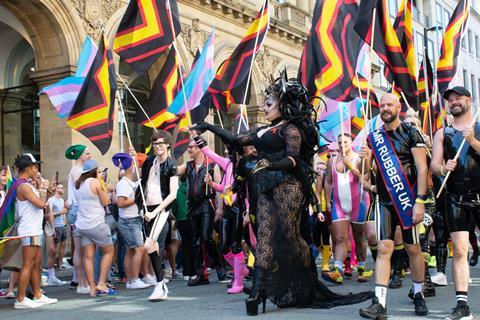
Around the time that he became chief executive at Shaftesbury, Freehold started up. “Real estate wasn’t changing and Freehold was part of that conversation,” he says.
Working in the legal profession meant Fazal was part of an industry that was a step ahead of the property world. While already out at Taylor Wessing, Fazal had not told many of his property contacts or clients that he was gay. The founding of Freehold also meant he came out to them. “You have many coming-out moments – some at work and some at home. It was another coming-out process,” he explains.
Founding Freehold
Mann spoke to his boss at the time, David Tuffin, to say he was starting the network. Tuffin was supportive but said that “some of the old guard might not like it”.
The first event was at RICS. Mann remembers an article about the event that questioned what John Clutton, one of RICS’ founding fathers, would think of an event being held there for gay surveyors. Mann’s reaction? “I don’t give a monkey’s what Clutton would have thought.”
At the beginning, in 2011, Fazal and Mann approached the biggest property companies and asked about their LGBT networks. “The clear message we got from them was that they didn’t have networks and didn’t need them,” says Mann. “They either said they didn’t have gay employees or didn’t have any issue.”
Fazal’s firm Taylor Wessing was instrumental at the beginning, when the property industry was reluctant. Freehold’s first meeting was held at Taylor Wessing. “One of our strange fears was that there would only be David and me there,” Fazal says. Word got out and more than 60 people turned up.
Initial meetings were “clandestine”. One director said they would join but did not want to be outed to their company because it would be “career-limiting”. Two years later, the company of this same director hosted a Freehold event. “It was transformational,” says Mann.
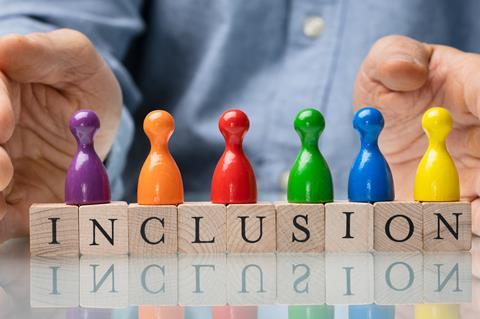
JLL is one of only two property companies listed on Stonewall’s workplace equality index and its LGBT network Building Pride is, according to Mann, “probably one of the best going”.
Paulina Herrmann, co-chair of Building Pride and associate at JLL Foodservice Consulting, is proud of what its LGBT organisation has achieved so far, particularly in supporting transgender employees. “Our focus is on LGBT equality and improving the workplace for our colleagues,” she says.
“JLL is great but it’s more about people like Ollie Saunders [head of UK valuation and alternatives at JLL], who is so inspirational. You walk away from a conversation with him and you feel great. People like that will be the change. Role models in senior positions are important.”
Saunders, who has worked in the industry since the mid-90s, came out in 2010 while being interviewed to become an equity partner at Drivers Jonas. Before this, he describes work as being “quite a lonely experience”. He adds: “If you hadn’t been open, colleagues and clients would make homophobic comments, which was pretty awful.”
Not there yet
Things have improved since then. Despite fears that coming out would damage his reputation, “being visible has made people change their behaviour”.
This does not mean that the industry is there yet, Saunders emphasises. “If you’re LGBT, it can be really hard to work in property,” he says. “Lesbians are underrepresented. There’s still biphobia and transphobia. It can be hard being LGBT with high depression rates.”
Mann and Fazal guess that around 80% of Freehold are male, with men accounting for 90% of those turning up to events. Having been accused of not being diverse enough, they have tried to make the network more inclusive. This includes holding events for their female members, trans awareness events and events focusing on gay parenting.
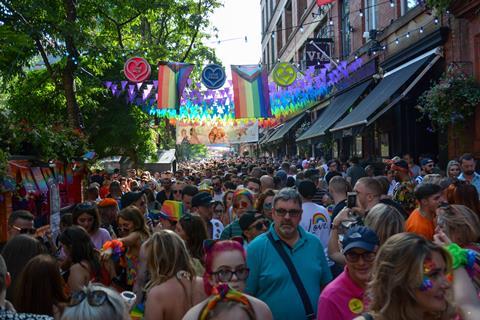
There is also a big discrepancy between support for LGBT members of the property industry in London compared with other regions. Fazal and Mann are currently putting together a strategy to address that issue. They will take Freehold to Manchester Pride and when the film Stonewall 50 is screened at RICS in London, there will also be screenings in Manchester and Edinburgh.
Freehold’s struggle with diversity reflects the lack of it in the wider industry. “We’re having to play catch-up a little here. People still perceive us as a fuddy-duddy male-dominated rugby club. The industry needs to be more open,” Bickell adds.
In the meantime, Mann celebrates the small wins. At industry dinners, people play ‘bullshit bingo’, guessing which on-trend topic the after-dinner speaker will go for and the answer is often diversity and inclusion. “I’m so proud we made it to bullshit bingo,” he says.
























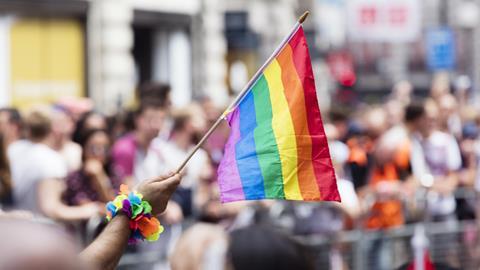






No comments yet